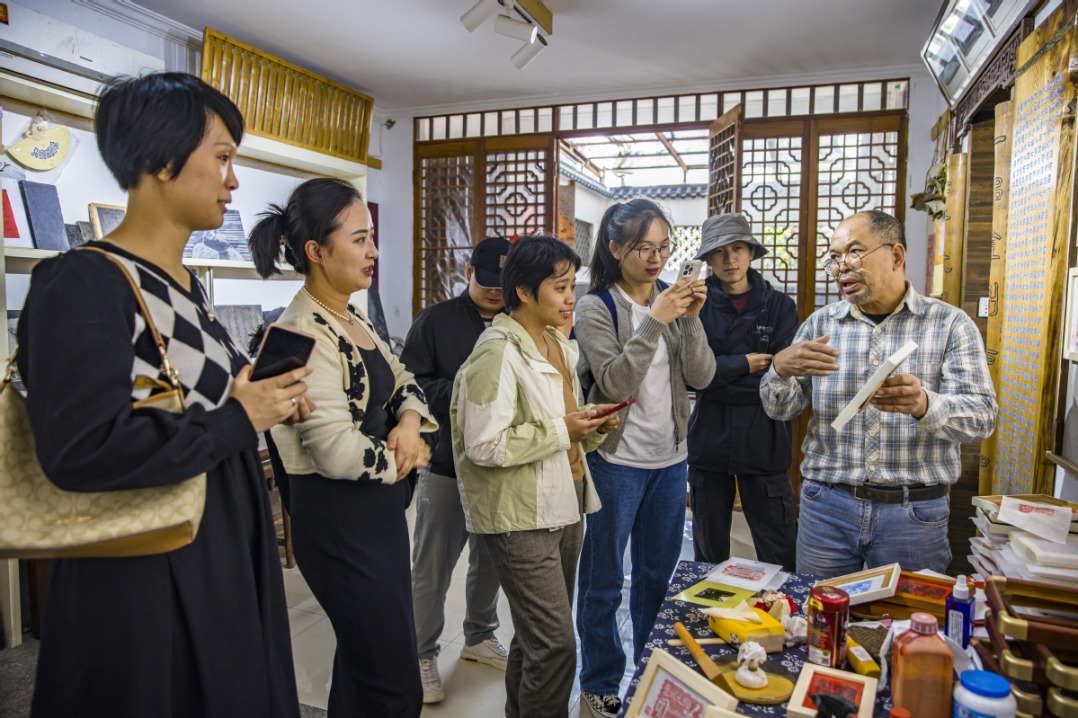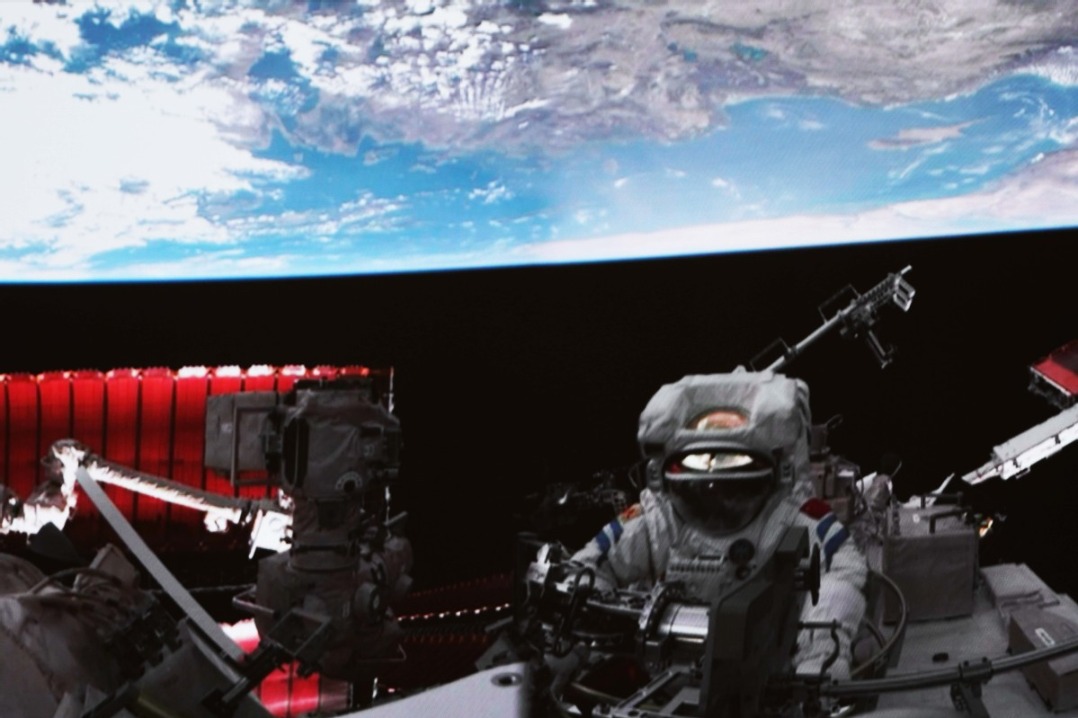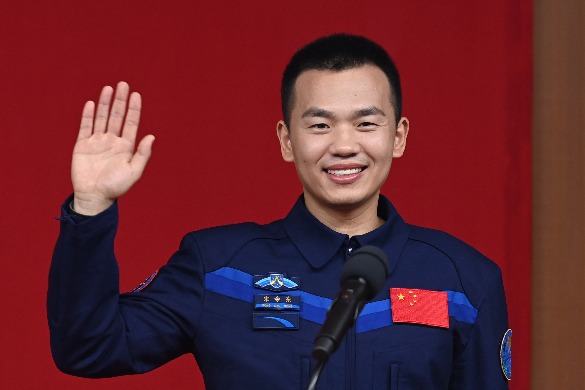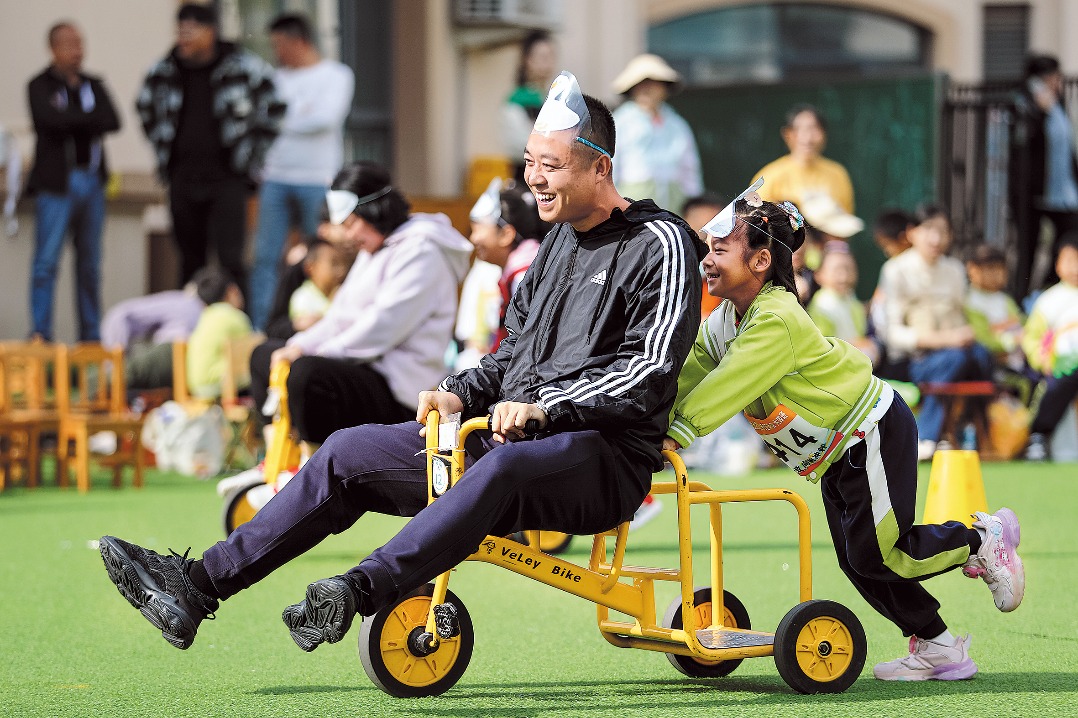China-US military ties seen as key to stability
Military: ‘Peace as the priority’ emphasized

The Chinese defense minister urged his United States counterpart in a video call to "explore the way for the two militaries to get along," with experts saying the high-level military talk was the latest effort by both sides to prevent military crises or conflicts against the backdrop of China-US tensions.
Dong Jun, minister of national defense, held a video call on Tuesday night with US Secretary of Defense Lloyd Austin, according to a statement released by the ministry on Wednesday.
It was the first official dialogue between the defense chiefs since the senior Chinese military official took office at the end of last year. The previous talks between Chinese and US military chiefs were held in November 2022, during the ASEAN Defense Ministers' Meeting-Plus in Cambodia.
Stressing that the leaders of both sides are committed to promoting the stability and improvement of bilateral ties, Dong said the military ties are crucial for implementing the consensus of the two heads of state, stabilizing the development of China-US relations, and preventing major crises.
In November, President Xi Jinping and US President Joe Biden reached consensus on a series of issues while meeting in San Francisco, including an agreement to resume high-level military communication on the basis of equality and respect.
Dong stressed that the Chinese and US militaries should explore ways to get along, proposing some basic principles that "put peace as the priority, stability as the key, and trust as the foundation".
Based on equality and mutual respect, both sides should construct military ties that "feature nonconflict and nonconfrontation, conduct practical cooperation, and gradually accumulate mutual trust", providing a cornerstone for stabilizing the development of bilateral relations, he added.
Zhou Bo, a senior fellow at Tsinghua University's Center for International Security and Strategy, said the defense chiefs' video call was in line with the consensus reached by the leaders of both countries during their San Francisco meeting.
However, the two countries and their militaries need to explore a suitable way of interaction, he said.
Mutual trust between the two militaries is at a low level currently, and it must be built up step by step to prevent military conflicts between China and the US, which neither side desires, he said.
A researcher at the People's Liberation Army's Academy of Military Sciences, who asked to remain anonymous, said that the US currently views China as a strategic competitor, which has led to sustained tension.
"In this context, China and the US need to find a way to prevent military conflicts or armed clashes," he said.
However, the researcher underscored the significance of high-level defense talks, noting that the willingness of both sides to engage in dialogue has in itself demonstrated their desire to manage crises and avoid entering a state of war or conflict, which would not be in the interest of either side.
"If both sides have no contact, they will perceive each other from the worst possible scenario, making it very easy to enter a state of war or conflict," he said.
Also on Wednesday, Li Xi, spokesperson for the PLA's Eastern Theater Command, said that the PLA monitored and responded lawfully to a US P-8A anti-submarine patrol aircraft flying through the Taiwan Strait on Wednesday.
The researcher at the People's Liberation Army's Academy of Military Sciences said that US actions in the Taiwan Strait and the South China Sea are part of its overall strategy to contain China, signaling that the US presence in the Western Pacific is long-term.
"The US verbally claims to uphold peace and security in the region, but in reality, it is safeguarding its own interests and those of its allies," he added.
- Senior Chinese lawmakers meet amid legislative session
- Chinese premier expects China, ADB to boost cooperation
- Chinese lawmakers urged to better perform duties
- Global leaders shape low-carbon future at Guangdong summit
- China releases landmark bulletin on 75 years of ecological conservation efforts
- Discover how noodles looked centuries ago




































